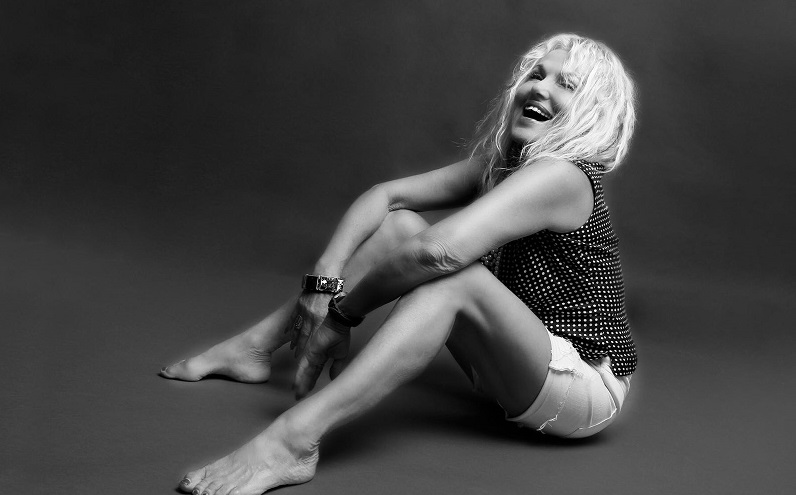Advertising has come a long way from the ‘Mad Men’ days: yes, it’s still about selling stuff, but it now plays a much larger role in holding up a mirror to society. The last decade in particular has seen several taboo-busting campaigns tackle those topics society finds difficult to discuss openly.
Read on for our Top Six Taboo Topics we’re expecting to see more of in 2020.
Menopause
Omg, seriously??? Yes, it’s really, really, REALLY hard to find any advertising at all around something which directly affects more than half the population, and indirectly affects the rest. In fact, we have no mainstream ads to show as examples. But, the tide is turning as it sets in that this is a prime opportunity for creatives to provide useful, compelling ads for myriad products and services in an inexplicably under-served area.
We're expecting to see much more creativity and visibility around menopause for 2020. Here are some things we can all bear in mind as this taboo comes out into the open at long last:
- It’s not a negative! Yes, it can be challenging, but menopause brings so many positives.
- Look at it like an optimal performance subject, like marathon-training.
- Remember young women can experience early menopause; they can also have temporary menopause induced as a treatment for endometriosis.
- And if you're on the advertising side, bring in the experts! There are plenty of top female creatives who’ve experienced menopause whose input is essential to get the best result for the rest of us.
DVA against men
Domestic and gender violence is traditionally regarded as being male on female. One of the most striking ads we saw around that in 2019 was the Romanian campaign Unquiet Voices.
However, DVA (domestic violence and abuse) against men is a taboo now emerging from the shadows: in 2019, it gained more exposure in reports like this one by the BBC, and the British government unveiled its commitment to tackle abuse of men and boys.
Part of the taboo around this issue has sprung from long-standing perceptions of masculinity. Although a slew of ads have been addressing what makes a ‘real man’ in ads like Gillette US’s ‘the best a man can be ; Gillette Spain’s ‘Hay que ser muy hombre’ anti-stereotyping campaign; US rapper and actor Mahershala Ali asking What Makes a Man? for fashion label Ermenegildo Zegna; and Lynx continuing its #MenInProgress campaign, DVA against men has yet to become fully visible.
Ageing
An eternal taboo, it seems, as most of us are uncomfortable with the notion of our own mortality, and anything that reminds us of it.
The mirror advertising holds up to society here is generally a fearful one – let’s not forget that the global cosmetics market is predicted to be worth more than US $800 billion in 2023. Even so, we’re seeing a few more upbeat and realistic approaches like the appearance of older models in fashion ads, an acknowledgement of vibrant lifestyles after the age of 65, and even a ‘pro-age’ campaign by Dove – based around women only.
War/refugees
In December 2019, London commuters were bemused by the appearance of posters in Underground stations advertising NATO - the North Atlantic Treaty Organization, a military alliance between North American and European countries. "I didn't know London had hosted NATO," commented one. "When did that happen?" 
"Why does a military organisation need to advertise in the Tube?" questioned another. "Who's it aimed at?"
With conflicts across the globe causing literally untold misery, the hidden agendas remain taboo, but there are some reminders of the world’s constant state of war in advertising and awareness campaigns, usually by organisations like the Red Cross and the United Nations.
Britain’s anti-landmine HALO Trust put out a Christmas 2019 ad around toys, and this 2017 tale of two refugees separated by age tells a chilling, long-lasting truth of how they are united by war.
People fleeing war in their own countries impacts on migration, which can become a source of further conflict, death and social disruption.
It remains to be seen how 2020 campaigns will inform and influence us.
Obesity/fat
As terms like ‘fat-shaming’ and ‘fat phobia’ enter our vocabulary and ‘fat activists’ – very often females – increasingly take to the stage to combat decades of pressure to be slender, the lines between personal responsibility and public health are becoming blurred, creating a new taboo area.

Debate raged after two very different promotions emerged in the same week in 2019, both provoking mixed and strong reactions. Cancer Research UK visually equated obesity with smoking in this attention-grabbing poster campaign, and US singer/songwriter Miley Cyrus used obese model Angelina Duplisea (above) in her ‘Mother’s Daughter’ video, which had racked up well over 77 million views on YouTube at time of writing.
Sexual harassment/assault
As the #MeToo movement – originally created in 2006 – moved up several gears, everyday sexual dangers became more visible, a trend we’re expecting to see grow in 2020.
In 2019, NGO Amnesty International put out this campaign stressing that sex without consent is rape, Brazilian singer Malia featured in this ad for a nail sticker that detects rape drugs in drinks.
Men were encouraged to understand how women feel in certain situations in this United Nations Women role reversal campaign, which may also strike a chord with men who’ve felt the threat of sexual assault first-hand.
And the Women’s Equality Party in Britain injected biting humour into their poster campaign pointing out that no MPs (lawmakers) have been brought to justice after 2017 claims of harassment and misuse of power at the UK’s political heart, Westminster.

ENDS





